Female Fertility
Our Female Fertility Blood Test assesses key hormone levels that impact ovulation, egg quality, and menstrual health, helping diagnose imbalances, ovarian reserve issues, PCOS, or thyroid disorders. It’s ideal for those trying to conceive, planning ahead, understanding reproductive health, or monitoring fertility treatments.
Unlock Your Path to Parenthood: Assess Hormone Health and Ovarian Reserve – Effortlessly at Home
Dreaming of starting a family, but wondering if your body is ready? Irregular cycles, unexplained delays, or nagging doubts about fertility can weigh heavy – especially when time feels precious. Our Female Fertility Blood Test provides a comprehensive hormone snapshot, revealing imbalances, ovarian reserve, and thyroid function to guide your next steps with clarity and confidence.
With a professional nurse visiting your home for a simple venous blood draw, you’ll get detailed results in 7 days – the proactive tool to empower conception, support treatments, or plan ahead without the stress of clinics.
The Hidden Hurdles in Women’s Fertility – Don’t Let Uncertainty Delay Your Dreams
Fertility isn’t just about “trying harder” – subtle hormone shifts can silently disrupt ovulation, egg quality, or cycles, turning hopeful months into frustrating waits. Conditions like PCOS, thyroid issues, or low ovarian reserve often hide behind symptoms like irregular periods, mood swings, or low libido, making conception feel out of reach. For women in their 30s or 40s, or those with family histories, these imbalances compound with age, stress, or lifestyle, potentially leading to delayed pregnancies, treatment setbacks, or emotional tolls.
Envision the relief of knowing: Is it PCOS affecting your hormones? Low AMH signalling ovarian reserve concerns? Or thyroid fluctuations messing with your cycles? Without testing, it’s speculation – but early insights allow timely tweaks, like diet changes or IVF adjustments, boosting success rates. “After years of irregular periods, this test pinpointed my PCOS – now we’re on track for IVF.” – Laura M., Edinburgh.
Arm yourself with data to take control, whether planning now or preserving options for later.
Who Should Take the Female Fertility Blood Test? If This Resonates, It’s Time to Know
This test is essential for women navigating reproductive health at any stage.
Opt for it if you’re:
- Planning pregnancy soon and want a baseline on hormones and ovarian reserve to optimise timing?
- Facing conception challenges after 6-12 months, suspecting imbalances in ovulation or cycles?
- Managing symptoms like irregular periods, mood changes, hormonal acne, or loss of libido that hint at PCOS or thyroid issues?
- Considering fertility preservation like egg freezing, needing accurate AMH and FSH insights?
- In fertility treatments (IVF, IUI) requiring monitoring of responses to meds and hormones?
- Proactive about health with risk factors like family history, age over 35, or conditions affecting fertility?
Test once for baseline peace of mind, annually if monitoring, or every 3-6 months during treatments/PCOS management – as advised by your doctor.
What Your Female Fertility Blood Test Reveals – A Complete Hormone and Reserve Profile
Our UK-accredited lab examines key biomarkers via a single venous sample, providing an easy-to-read PDF report with explanations and GP-shareable insights. Focused on fertility drivers, here’s what we uncover:
- Follicle Stimulating Hormone (FSH): Stimulates ovarian follicles for egg development. Elevated levels may indicate diminishing reserve or early menopause – crucial for assessing ovulation readiness.
- Luteinising Hormone (LH): Triggers ovulation and affects sex organs. Imbalances (e.g., high with low FSH) can signal PCOS or irregular cycles, helping pinpoint conception barriers.
- Prolactin: Pituitary hormone that, when elevated, suppresses ovulation and fertility. We check for highs from stress or meds, which could explain delays or menstrual issues.
- Sex Hormone Binding Globulin (SHBG): Binds sex hormones to regulate availability. Low levels might contribute to excess androgens in PCOS, impacting fertility, energy, and mood.
- Testosterone: Produced in ovaries, small amounts support reproductive health. Excess can disrupt cycles and libido; we measure to detect androgen-related fertility hurdles.
- Thyroid Stimulating Hormone (TSH): Gauges thyroid function, vital for cycles and conception. Imbalances (hypo/hyper) can cause irregular periods or miscarriage risks – testing ensures hormonal harmony.
- Oestradiol (Estrogen/E2): Main reproductive estrogen regulating cycles and egg quality. Low/high levels affect ovulation and implantation; insights guide treatment or lifestyle fixes.
- DHEA Sulphate: Adrenal hormone precursor to estrogen/testosterone. Levels reflect overall endocrine health, influencing fertility in ageing or stressed women.
- Anti-Müllerian Hormone (AMH): Produced by ovarian follicles, it estimates egg quantity/quality (ovarian reserve). Higher AMH suggests better reserve for natural conception or IVF success.
- Free Androgen Index (FAI – Calculation): Estimates active testosterone by ratio to SHBG. Elevated FAI flags androgen excess (e.g., in PCOS), linking to symptoms like hair growth or fertility blocks.
Your report flags normals, trends, and actions – empowering you to discuss with specialists confidently.
Addressing Your Doubts – Simple, Confidential, and Empowering
- Worth the step? Yes – proactive testing saves time and heartache, with higher IVF success from early interventions.
- Process concerns? A quick home venous draw by our expert nurses – private, painless, and faster than NHS referrals.
- What about interpretation? Clear guidance included; share with your GP for personalised plans.
- Privacy assured: GDPR-compliant, secure lab handling for sensitive reproductive data you control.
Start your informed journey today – fertility futures begin with knowledge.
Testing for Female Fertility
✅ Over 2,000 tests completed across the UK
✅ Trusted by patients, athletes, and health-conscious professionals
✅ NHS-comparable testing standards
✅ 100% secure and confidential
How often should I have a Female Fertility blood test?
The frequency of a Female Fertility Blood Test depends on your goals and health status:
Once a year if you’re proactively monitoring reproductive health or planning for pregnancy in the future
Every 3–6 months if you’re undergoing fertility treatment or managing a diagnosed hormonal condition like PCOS or thyroid imbalance
As advised by your doctor following abnormal results, changes in symptoms, or before starting new treatments like IVF or egg freezing
If you’re not actively trying to conceive but want peace of mind, a one-time test can still offer valuable insight.
Nurse appointments fill up fast — book now to secure your preferred date.
Other Questions
- Fertility issues
- Hormonal imbalance
- Mood changes
- Menstrual problems
- Hormonal symptoms
- Loss of libido
- Follicle Stimulating Hormone
- Luteinizing Hormone
- Prolactin
- Sex Hormone Binding Globulin
- Testosterone
- Thyroid Stimulating Hormone (TSH)
- Oestradiol/Estrogen/E2
- DHEA Sulphate
- Anti-Mullerian Hormone (AMH)
- Free Androgen Index (Calculation)
Take this test if you’re planning a pregnancy, having trouble conceiving, starting fertility treatment, or simply want clarity on your reproductive health.
Collection method: Venous blood
Results available: 1-2 days after the sample has reached the laboratory.
Follicle Stimulating Hormone (FSH)
The test will measure the FSH in your blood. FSH plays an important role in sexual development, sexual functioning and stimulating the growth of ovarian follicles.
Luteinizing Hormone
The test will measure the LH in your blood. LH plays and important role as it affects the sex organs in both men and women. However in women triggers ovarian follicles.
Prolactin
The test will measure the amount of prolactin in the blood. Prolactin is a hormone made by the pituitary gland. If levels are too high ovulation can be affected.
Sex Hormone Binding Globulin
The test will measure the levels of SHBG in your blood.
SHBG is a protein made by the liver and attaches itself to sex hormones in both men and women. It helps balance your sex hormone levels to keep your body functioning properly — including things like fertility, energy, mood, and reproductive health.
Testosterone
Testosterone is the primary sex hormone and anabolic steroid in males. It plays a major role in the reproductive tissues such as the prostate and testes. In women it is produced in the ovaries in small amounts and aids the reproductive system.
Thyroid Stimulating Hormone (TSH)
This test will measure how much TSH is in your blood.
TSH is made in your pituitary, (a gland in your brain) when your thyroid levels are low the pituitary gland makes more TSH and when the thyroid levels are high your pituitary makes less TSH This result indicates how well the thyroid is working. Thyroid function plays a major role in menstrual cycles and fertility.
Oestradiol/Estrogen/E2
This test measures the Oestradiol in your blood.
Oestradiol also known as E2 is the main form of estrogen in women of reproductive age. It’s a powerful hormone that plays a key role in regulating the menstrual cycle, supporting fertility, and maintaining overall reproductive health.
DHEA Sulphate
This test will measure the amount of DHEA Sulphate in your blood
DHEA Sulphate (DHEAS) is a hormone made mostly by your adrenal glands (small glands located above your kidneys). It acts as a building block for other important hormones in your body, like estrogen and testosterone.
Anti-Mullerian Hormone (AMH)
AMH is a hormone produced by the small follicles (tiny sacs) in your ovaries that contain immature eggs. This test will measure the level of AMH in your blood which will give a strong indication of your ovarian reserve — meaning, how many eggs you have left.
Free Androgen Index (Calculation)
The FAI blood test measures your Free Androgen Index (FAI) — an estimate of how much free (active) testosterone is circulating in your blood.
It’s calculated by comparing your total testosterone levels to your SHBG (Sex Hormone-Binding Globulin) levels.
Since SHBG binds to testosterone and makes it inactive, FAI helps show how much testosterone is actually available for your body to use.
How it Works
1. Order a Test
Order your test, and then Answer the Questions about why you’re taking that test.
Our nurse will contact you for dates, so they can take your blood sample at your home.
Our nurse will then send your sample to our laboratory.
2. Our laboratory team run the tests
Our skilled laboratory staff conduct your blood tests in a clean and secure environment, ensuring accuracy and reliability.
Each test follows strict protocols to maintain the highest quality standards.
3. Receive Your Results within 7 days
We will email you to inform you that your blood test results are ready.
The email will have a PDF report attached, sent directly to your inbox.
4. Monitor your levels over time
With regular ongoing tests and reports, you can track your results. The reports can be shared with your GP.
Check if you’re improving healthily or where changes could be made.






